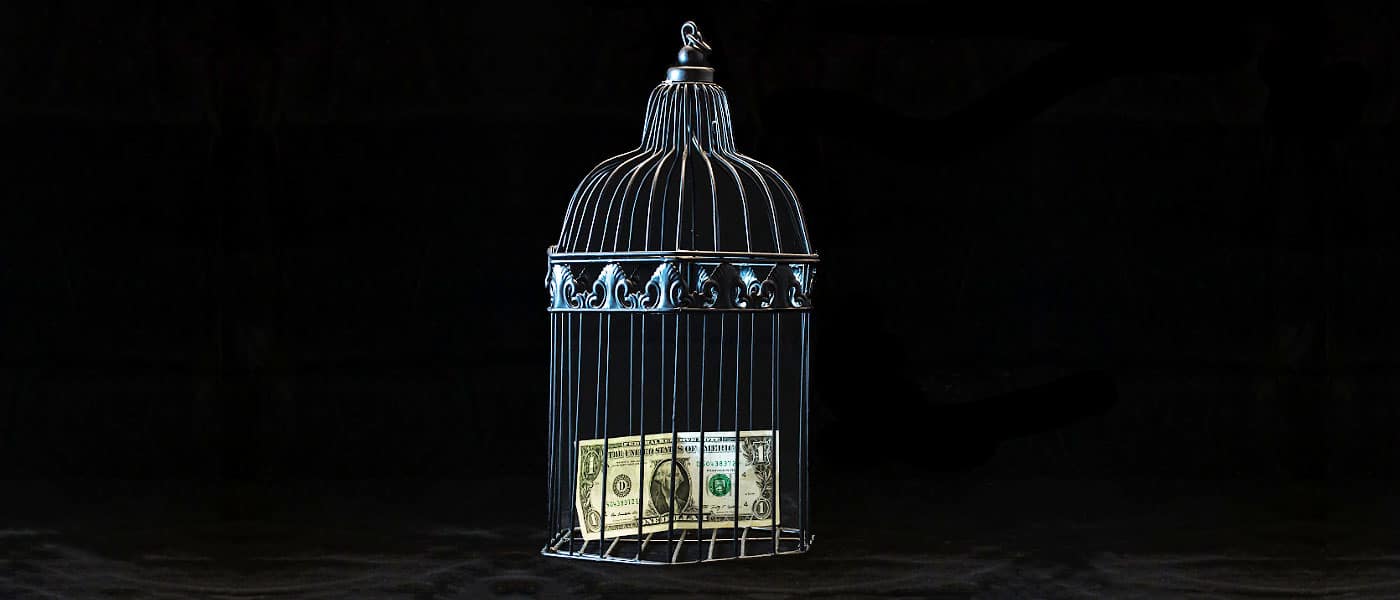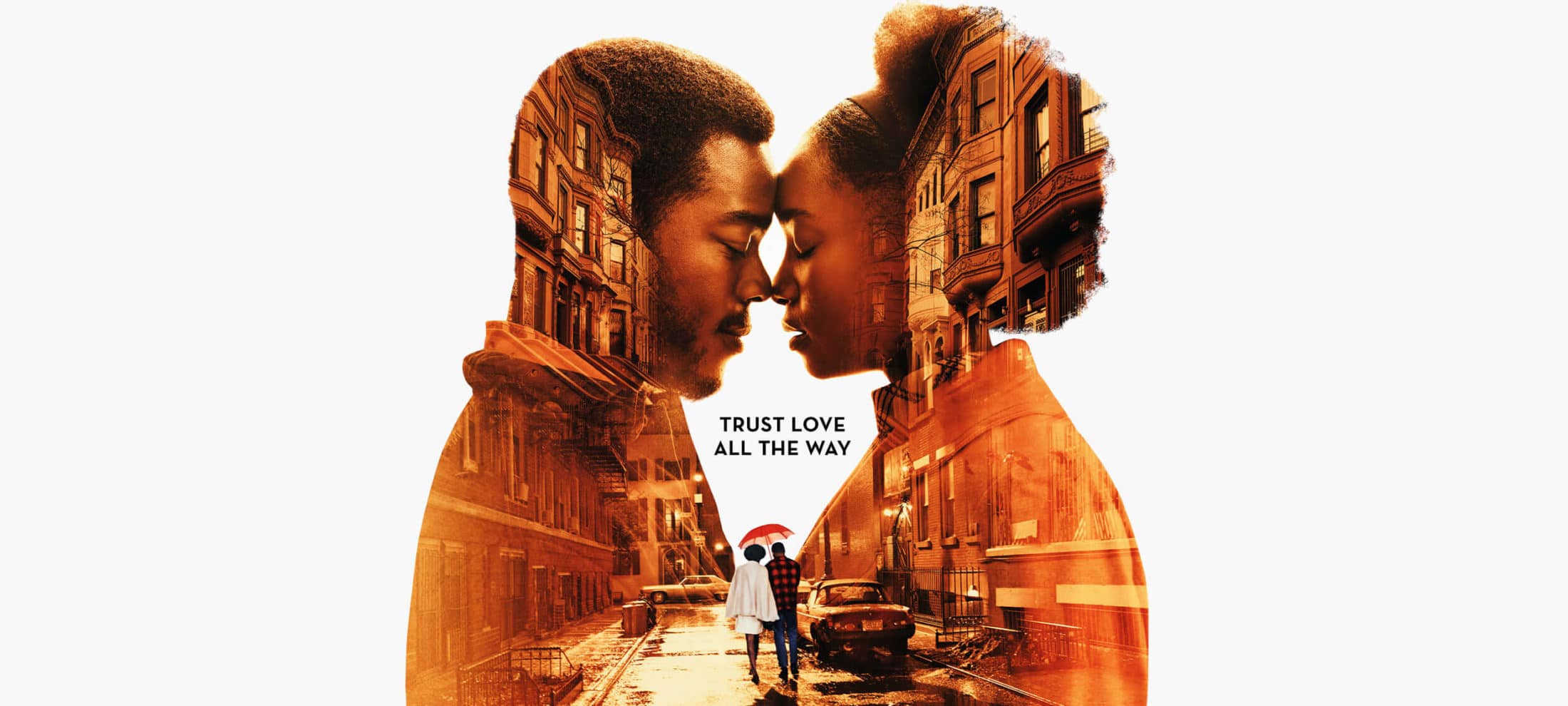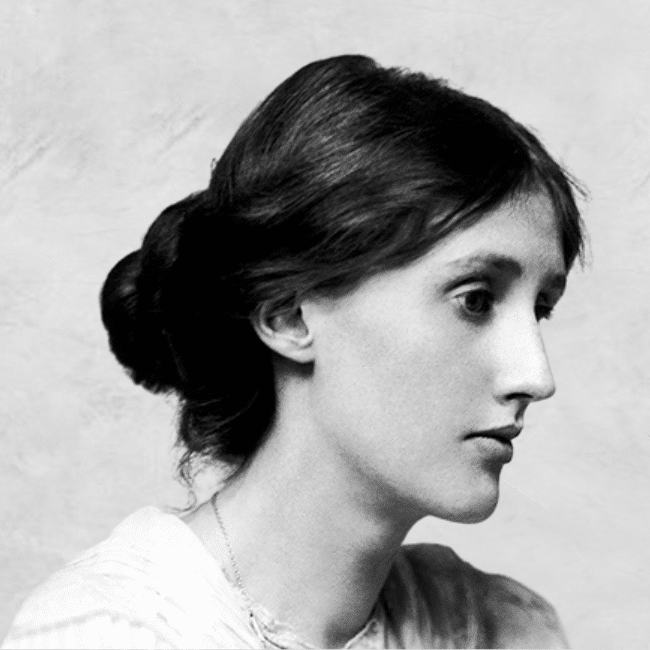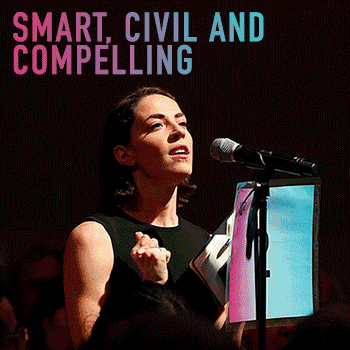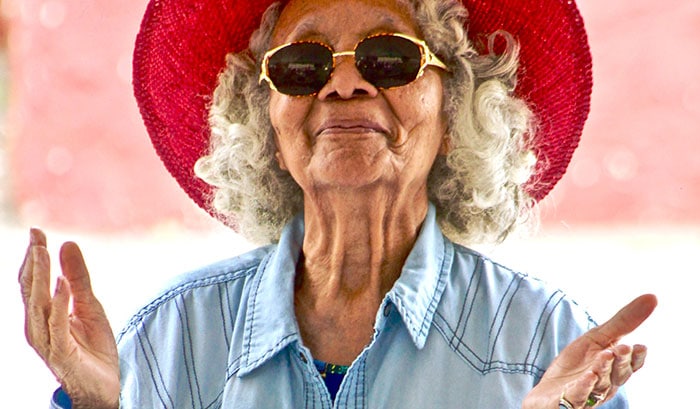Shadow values: What really lies beneath?

Shadow values: What really lies beneath?
Opinion + AnalysisBusiness + Leadership
BY John Neil The Ethics Centre 6 JUL 2019
Respect, integrity, communication, and excellence. They’re admirable and worthy corporate values – ones you’d proudly make official and put on the wall.
Unfortunately, those same values belonged to Enron. Only 12 months before declaring bankruptcy in 2001, the largest in US history at the time, Enron received plaudits for its 64 page Code of Ethics. It was named “America’s Most Innovative Company” by Fortune magazine and received numerous awards for corporate citizenship and environmental policies.
Enron’s failings have been well documented as the prototypical case study of what can happen when an organisation decouples its official values, principles and purpose – what we call an Ethics Framework – from its everyday behaviours.
It’s a perennial challenge for all organisations. Ensuring behaviour, policies, systems and processes are aligned with that ethical framework is no easy feat. If the managers of an organisation say one thing but consistently do something else entirely, it breeds cynicism and disconnection that permeates the entire workforce. Customers and other stakeholders eventually figure it out as well.
Hidden from view
Many organisations have a second set of values lurking beneath the surface. These unofficial values – no less powerful than the official ones – are called ‘shadow values’.
Uncovering shadow values can reveal deeper facets of an organisation’s actual operating culture. By proactively identifying and monitoring its shadow values, an organisation is better placed to see any early drift in the alignment of its culture from its values and principles.
Consider the fraudulent behaviour of Volkswagen engineers who deliberately programmed 500,000 diesel-powered vehicles to provide false readings during emissions testing. Despite the company’s explicit corporate values of excellence, professionalism and a commitment to integrity, it became clear through the accounts of investigators and employees, that a number of unofficial shadow values were dominating the organisation’s culture.
Volkswagen’s official and shadow values
In psychology, the dark side of human nature is often described as the alter ego. While Freud referred to the Id, Jung identified it as the shadow, referring to the sum total of all those unpleasant qualities we prefer to hide. The shadow gains its power through being habitually repressed. And it manifests in a multitude of symptoms and psychological disturbances.
Similarly, an organisation’s shadow values gain their power from being kept below the surface. At their worst, they are destructive mutations of the official values which pose an existential threat to the integrity of an organisation’s ethical culture.
Despite the official values of ‘teamwork’ and ‘respect for individuals’, Volkswagen’s implicit leadership model was widely recognised as one that valued ‘autocracy’ and delivering ‘success’ at any cost.
A focus on fear
A culture of ‘fear’ was common, with intimidation used as a primary motivator for achieving sales targets. Fear provided a bulwark against any dissenting voice being raised to challenge decisions. These voices were kept silent by a culture that fostered ‘internal competition’ and ‘secrecy’.
Shadow values can also throw into relief sanctioned organisational values, revealing subtle nuances in the way they are understood and practiced day to day. For Volkswagen, its stated value of ‘excellence’ was subsequently revealed to be a very specific type of value – ‘technical excellence’.
The value of technical excellence has been evident throughout the company’s history. Volkswagon turned to it in that 2015 scandal, just as it did in the 1970s when it was found guilty of similar manipulative practices to avoid emissions regulations.
These shadow values had their genesis in the shift in VW’s purpose. Following the appointment of Martin Winterkorn as CEO in 2007, Volkswagen set itself a goal: “To become the world’s largest automaker by 2018”. Winterkorn’s strategy was premised on developing a competitive advantage in ‘clean’ diesel rather than hybrids and other alternatives.
A shift in purpose
With tighter regulatory controls in the US, intense pressure was focussed on engineers to develop a technical solution, which they duly delivered, under the authority of the shadow values. In secretly modifying existing software capabilities that overrode pollution controls, Volkswagen went on to sell over 12 million illegal vehicles and met the target of becoming the “world’s largest automaker”, three years ahead of schedule.
This shift in purpose was not recognised formally in the company’s ethical framework. Allowing shadow values to proliferate unmoored the company from its purpose, values and principles. Indeed many of those shadow values were officially discouraged by VW’s ethical framework.
After his appointment in June 2017, new CEO Matthias Müller noted, “Our management culture needs to improve… openness, the courage to make innovations and speak one’s mind, as well as true willingness to cooperate are all essential elements… We need a solid system of values as a compass for our daily work.”
One hopes this “solid system of values” will be more attuned to the ones that might be still operating in the shadows.
At their worst, shadow values are in complete opposition to official values. At their best, they provide a nuanced expression of what an organisation really cares about. Either way, they are very revealing of an organisation’s true, operating culture.
The Ethics Centre is a world leader in assessing cultural health and building the leadership capability to make good ethical decisions in complexity. To arrange a confidential conversation contact the team at consulting@ethics.org.au. Visit our consulting page to learn more.
Ethics in your inbox.
Get the latest inspiration, intelligence, events & more.
By signing up you agree to our privacy policy
You might be interested in…
Big thinker
Business + Leadership
Big Thinker: Karl Marx
Opinion + Analysis
Business + Leadership, Relationships
Moving work online
Opinion + Analysis
Business + Leadership, Relationships
Can you incentivise ethical behaviour?
Opinion + Analysis
Science + Technology, Business + Leadership
Ask an ethicist: Should I use AI for work?
BY John Neil
As Director of Education and Innovation at The Ethics Centre, John collaborates closely with a talented team of specialists and subject matter experts to shape the tools, frameworks, and programs that drive our work forward. He brings a rich and varied background as a consultant, lecturer, and researcher, with expertise spanning ethics, cultural studies, sustainability, and innovation. This multidisciplinary perspective allows him to introduce fresh, thought-provoking approaches that energise and inspire our initiatives. John has partnered with some of Australia’s largest organisations across diverse industries, to place ethics at the heart of organisational life. His work focuses on education, cultural alignment, and leadership development to foster meaningful and lasting impact.
BY The Ethics Centre
The Ethics Centre is a not-for-profit organisation developing innovative programs, services and experiences, designed to bring ethics to the centre of professional and personal life.
If you condemn homosexuals, are you betraying Jesus?

If you condemn homosexuals, are you betraying Jesus?
Opinion + AnalysisRelationships
BY Simon Longstaff 3 JUL 2019
The controversy surrounding Israel Folau’s Instagram posts has tended to focus on questions of free speech, religious freedom and employers’ rights. But I want to ask a deeper question: is Folau’s position consistent with the teachings and example of Christianity’s founder, Jesus of Nazareth?
In thinking about how one might answer this question, I make the following assumptions:
- that, as the incarnation of the divine, Jesus was incapable of error;
- that Jesus’s life and teachings are the ultimate source of authority for Christians;
- that the words and deeds of Jesus, as recorded in the four canonical Gospels, take precedence over those of any other theologian or interpreter (including Paul the Apostle); and
- that the New Testament has priority over the Old Testament ― to the extent that there is any disagreement.
So, what is the essence of Jesus’s life and teaching as revealed in the Gospels? Traditionally, the focus has been on Jesus’s offer of unconditional love and the associated blessing of healing ― both physical and spiritual (the latter through forgiveness of sins).
Jesus does not present himself as breaking with Judaism. He says explicitly that he has not come to overturn the Mosaic Law of his Jewish forebears, but to bring it to its fulfilment, to reveal its essence. On two occasions ― during the Sermon on the Mount and at the Last Supper ― Jesus speaks directly of the core principles on which the Torah is founded. On the earlier occasion, Jesus explicitly states that all of the law is expressed in the two “greatest” commandments: to love God with all one’s heart; to love one’s neighbour as oneself.
However, in the Gospel of John, Jesus goes one step further. John writes that, at the Last Supper, Jesus presents to his immediate disciples a final encapsulation of all his teaching. Affirming his direct connection with the Father, telling them that he is to ascend to heaven but will send a guide in the form of the Holy Spirit, Jesus issues his disciples with a new commandment. This is what John (13:33-35) reports Jesus to have said:
Whither I go, ye cannot come; so now I say to you. A new commandment I give unto you, That ye love one another; as I have loved you, that ye also love one another. By this shall all men know that ye are my disciples, if ye have love one to another.
Unlike the great commandment, with its appeal to the self-love of each person, the new standard for agape (the non-erotic love one bears for another) is to be Jesus’s love for his disciples ― his friends ― and, presumably, for humanity at large.
If the claims of Christians are to be accepted, then Jesus’s new commandment is not a mere act of prophecy, no matter how inspired. It is not an interpretation of a revelatory experience. If you accept the Gospel of John (as I think Christians do), then Jesus has uttered a direct commandment from God; inscribed not on stone but in the hearts and minds of those present. Jesus’s new law is to “love one another as I have loved you.” How then does Jesus love others?
First, each of the Gospels present Jesus as loving unconditionally. Not once does he set a threshold to be crossed before he bestows his love. He heals people without requiring them to become his disciples. He forgives without first requiring a renunciation of sin. He may counsel a better life, but does not make that a precondition of his love. Indeed, he specifically cautions “the righteous” to avoid judging others ― to refrain from casting the first stone.
This is not to say that Jesus is indifferent to sin. In common with the Jewish tradition, Jesus recognises sin as a form of ‘moral servitude’, a loss of freedom. However, there is nothing in the Nazarene’s ministry that condemns homosexuals to eternal damnation ― nor anyone else. Jesus even prays for the forgiveness of those who have ordered and undertaken his torture at Calvary.
Most importantly, Jesus does not merely tolerate those whom others hold in contempt ― he cosies up to them. He touches them. He shares meals with them. He defies the rituals and customs of ‘purity’, even those prescribed in the Old Testament. In doing so, Jesus offends the prevailing piety and invites the censure of those who withdraw from all that is deemed to be ‘unclean’.
How, then, does Christianity in our time become a religion so quick to judge and condemn, and so reluctant to love others without qualification? How do Christians, like Israel Folau, come to invoke contempt for others, to believe it acceptable to cast the first stone ― from the safe distance of a social media account? Would not a Christian follow Jesus’s example and offer hospitality to those who others treat with disgust ― share a meal, feel their humanity, offer companionship, without any strings attached?
Why, in other words, are many Christians ignoring Jesus? Perhaps interpreters and theologians, like the Apostle Paul, were more eloquent. Perhaps preachers have come to enjoy a measure of success by playing to the underlying prejudices of their audience. Perhaps human beings find it too hard to embrace Jesus’s message of radical love and forgiveness. As Dostoevsky’s Grand Inquisitor explains ― somewhat apologetically ― in The Brothers Karamazov, if Jesus was to walk the earth today, he would have to be destroyed all over again. The world ― including his church – finds Jesus just too difficult to cope with.
Or, perhaps the truth is something darker. Has a deep and ingrained sense of disgust ― about sex in general, and homosexuality in particular ― bound some Christians in chains even stronger than sin?
While I understand that there is no monolithic “Christian” point of view about homosexuality, I am genuinely confused by the notion that any Christian can see matters as Israel Folau does. This is not to doubt the sincerity of Folau and his Christian supporters. But sincerity does not excuse fundamental error.
Surely modern Christians can grasp that a person’s sexual orientation is not something simply chosen. We are born “hard wired” with our preferences. To say that a homosexual person is destined for hell is to claim that each such person is born an abomination in the sight of God. That is an obscene suggestion ― not only in the eyes of a secular society, but, if the Gospels are to be believed, in the eyes of the founder of Christianity itself. Not once does Jesus indicate contempt for any person.
So, again I ask, how is it that a church founded on the commitment to unconditional love has become home to the demons of righteous indignation? In whose name has that been done? Don’t tell me it is Jesus. If unconditional love, free from any condemnation, is offered to the man who nails you to a cross, then how can it be withheld from someone whose only sin is to have not been born a heterosexual?
In the same spirit, perhaps it’s time to call a truce in the proxy war over free speech and religious freedom. It’s time for his detractors to practice what Jesus preached and reach out to Israel Folau; to extend to him friendship and understanding; to share a meal with him and offer him unconditional forgiveness ― for he knows not what he does.
This article was originally published by ABC , republished with permission.
Ethics in your inbox.
Get the latest inspiration, intelligence, events & more.
By signing up you agree to our privacy policy
You might be interested in…
Opinion + Analysis
Politics + Human Rights, Relationships, Society + Culture
Film Review: If Beale Street Could Talk
Opinion + Analysis
Relationships
The tyranny of righteous indignation
Opinion + Analysis
Relationships
The philosophy of Virginia Woolf
Opinion + Analysis
Relationships
Enwhitenment: utes, philosophy and the preconditions of civil society
BY Simon Longstaff
Simon Longstaff began his working life on Groote Eylandt in the Northern Territory of Australia. He is proud of his kinship ties to the Anindilyakwa people. After a period studying law in Sydney and teaching in Tasmania, he pursued postgraduate studies as a Member of Magdalene College, Cambridge. In 1991, Simon commenced his work as the first Executive Director of The Ethics Centre. In 2013, he was made an officer of the Order of Australia (AO) for “distinguished service to the community through the promotion of ethical standards in governance and business, to improving corporate responsibility, and to philosophy.” Simon is an Adjunct Professor of the Australian Graduate School of Management at UNSW, a Fellow of CPA Australia, the Royal Society of NSW and the Australian Risk Policy Institute.
Injecting artificial intelligence with human empathy

Injecting artificial intelligence with human empathy
Opinion + AnalysisRelationshipsScience + Technology
BY Allan Waddell 27 JUN 2019
The great promise of artificial intelligence is efficiency. The finely tuned mechanics of AI will free up societies to explore new, softer skills while industries thrive on automation.
However, if we’ve learned anything from the great promise of the Internet – which was supposed to bring equality by leveling the playing field – it’s clear new technologies can be rife with complications unwittingly introduced by the humans who created them.
The rise of artificial intelligence is exciting, but the drive toward efficiency must not happen without a corresponding push for strong ethics to guide the process. Otherwise, the advancements of AI will be undercut by human fallibility and biases. This is as true for AI’s application in the pursuit of social justice as it is in basic business practices like customer service.
Empathy
The ethical questions surrounding AI have long been the subject of science fiction, but today they are quickly becoming real-world concerns. Human intelligence has a direct relationship to human empathy. If this sensitivity doesn’t translate into artificial intelligence the consequences could be dire. We must examine how humans learn in order to build an ethical education process for AI.
AI is not merely programmed – it is trained like a human. If AI doesn’t learn the right lessons, ethical problems will inevitably arise. We’ve already seen examples, such as the tendency of facial recognition software to misidentify people of colour as criminals.
Biased AI
In the United States, a piece of software called Correctional Offender Management Profiling for Alternative Sanctions (Compas) was used to assess the risk of defendants reoffending and had an impact on their sentencing. Compas was found to be twice as likely to misclassify non-white defendants as higher risk offenders, while white defendants were misclassified as lower risk much more often than non-white defendants. This is a training issue. If AI is predominantly trained in Caucasian faces, it will disadvantage minorities.
This example might seem far removed from us here in Australia but consider the consequences if it were in place here. What if a similar technology was being used at airports for customs checks, or part of a pre-screening process used by recruiters and employment agencies?
“Human intelligence has a direct relationship to human empathy.”
If racism and other forms of discrimination are unintentionally programmed into AI, not only will it mirror many of the failings of analog society, but it could magnify them.
While heightened instances of injustice are obviously unacceptable outcomes for AI, there are additional possibilities that don’t serve our best interests and should be avoided. The foremost example of this is in customer service.
AI vs human customer service
Every business wants the most efficient and productive processes possible but sometimes better is actually worse. Eventually, an AI solution will do a better job at making appointments, answering questions, and handling phone calls. When that time comes, AI might not always be the right solution.
Particularly with more complex matters, humans want to talk to other humans. Not only do they want their problem resolved, but they want to feel like they’ve been heard. They want empathy. This is something AI cannot do.
AI is inevitable. In fact, you’re probably already using it without being aware of it. There is no doubt that the proper application of AI will make us more efficient as a society, but the temptation to rely blindly on AI is unadvisable.
We must be aware of our biases when creating new technologies and do everything in our power to ensure they aren’t baked into algorithms. As more functions are handed over to AI, we must also remember that sometimes there’s no substitute for human-to-human interaction.
After all, we’re only human.
Allan Waddell is founder and Co-CEO of Kablamo, an Australian cloud based tech software company.
Ethics in your inbox.
Get the latest inspiration, intelligence, events & more.
By signing up you agree to our privacy policy
You might be interested in…
Explainer
Relationships
Ethics Explainer: Begging the question
Opinion + Analysis
Health + Wellbeing, Relationships
Are there any powerful swear words left?
Opinion + Analysis
Health + Wellbeing, Relationships
LGBT…Z? The limits of ‘inclusiveness’ in the alphabet rainbow
Opinion + Analysis
Relationships, Politics + Human Rights
How to have a difficult conversation about war
BY Allan Waddell
Allan Waddell is founder and Co-CEO of Kablamo, an Australian cloud based tech software company.
Parenting philosophy: Stop praising mediocrity

Parenting philosophy: Stop praising mediocrity
Opinion + AnalysisRelationships
BY Matthew Beard 27 JUN 2019
I spent this weekend hearing from all corners what a wonderful Dad I am. It was quite lovely, and I’d very much like for it to happen more often.
This weekend I was effectively a sole parent as my wife was rendered bedridden by illness. For two days, I was in charge of a seven-week-old baby and almost three-year-old toddler.
Miracle of miracles – they didn’t die. In fact, I managed to feed and bath them, plus made sure they slept. I even packed them both up in the car and took them to a birthday party and back again.
An uneven playing field?
This is the Herculean labour that earned me torrents of praise. In fact, it didn’t just earn me praise – people messaged my bed-ridden wife not only with well-wishes, but to tell her how lucky she was. Oh, to have a co-parent like him!
I can’t imagine how frustrating these messages are for her to receive. I spend four days a week at work, which means she has the kids solo for those four days. In that time, she takes them to doctors appointments, libraries, playgrounds, feeds them, does an enormous amount of housework and manages, somehow, to keep herself alive.
What I did this weekend amounts to about 50% of what she does week in, week out. Guess how many people have texted me to say how lucky I am?
Less effort but more praise?
The double-standards here are staggering. They’re also incredibly unfair. To see someone receive more praise for less effort is profoundly invalidating – something about which women have been increasingly outspoken. It also makes social progress difficult – the more we see men’s modest contributions as incredibly generous and praiseworthy, the harder it is for women to ask more (even though what they’re asking for is entirely reasonable – lest we forget the last census, which reports that one in four men do zero housework).
What’s been less widely addressed is just how bad this double-standard is for men. I, and I would imagine most dads, want to be a great parent and partner. But that’s not helped by receiving praise for every little thing I do – it gives a false impression of exactly where I am on the spectrum: am I doing a great job, a terrible one, or just a mediocre one? It’s hard to tell through all the well-intended, generous praise.
Praise can be a double-edged sword
Praise is a powerful tool for behavioural change and moral growth. It can be used to help encourage people to do the right thing, remind them when they’ve slipped up and point out whose behaviour is a good example to follow. But that only works if the people offering praise have a clear idea of what’s actually worth praising – the praise in itself means nothing if it’s not properly calibrated.
And this is why the kind of praise I received is a problem. Taking care of your children is not exceptional, parenting-wise. It’s just what you’re supposed to do. Ditto, doing the laundry, cooking for the family, organising tradesmen to come and fix the house, planning birthday parties and all the other domestic activities that women do thanklessly and men do heroically. Or, at least, some men – again, one in four do no chores.
The sheer mass of men not pulling their weight makes it so easy for mediocrity to look amazing. The comedian Hannah Gadsby talks about how there is a line in the sand between ‘good men’ and ‘bad men’, but how it tends to be men who determine where that line is drawn. Similarly, as a dad I can always find a dad who isn’t doing quite as much as me and use that to determine how much I’m contributing. And, good news, I’m likely to have my self-image reinforced by praise and gratitude at every turn.
What’s more, there’s a social message embedded in that praise. Just as the text message said, women are told they should be grateful to have a partner who is not one of those who does no housework. Maybe he doesn’t do much – but it’s not nothing, so lucky you. Obviously, these narratives are very bad for equality.
They’re also, as I said, very bad for men who want to be great partners, parents and people. The school of ethical thought that most focusses on the kinds of questions I’m asking here is known as ‘virtue ethics’. Virtue ethics focusses on the kinds of character traits that are most likely to make people good and the kinds of activities that are likely to develop and model those characteristics.
Thinking in this way, we might be inclined to say that being a good parent requires the development of a bunch of different character traits – like compassion – and then practising those character traits by, say, holding a child gently while they have an emotional meltdown.
However, one the key ways we learn the virtues is by emulating role models. That means who we single out as role models is really important and – as we’ve said – what counts as ‘exemplary’ parenting can, for dads, be a pretty low bar. Not only does this leave a lot of cleaning up for the co-parents of men who have been sold this story, it undermines their ability to become who they really want to be: great dads.
What do we do about this? Well, for one thing, we should stop giving blokes a cookie just because they showed up. Reserve our praise for when it’s really deserved – and then hand it out equally. Great parenting is great parenting – just because it’s more common to see women in that role doesn’t mean they’re unworthy of praise.
Second, I think men have got to be critical about the kinds of feedback they receive. Before letting it stoke our egos, we need to consider whether or not it’s warranted. In an age of allyship and leaning in, social brownie points are pretty easy to come by for men. But we need to hold ourselves to a higher standard. As the philosopher Kwame Anthony Appiah writes, “a person of honour cares first of all not about being respected but about being worthy of respect.”
Matt Beard is a tired, okay dad.
Ethics in your inbox.
Get the latest inspiration, intelligence, events & more.
By signing up you agree to our privacy policy
You might be interested in…
Opinion + Analysis
Health + Wellbeing, Relationships
Duties of care: How to find balance in the care you give
Opinion + Analysis
Politics + Human Rights, Relationships
To Russia, without love: Are sanctions ethical?
Opinion + Analysis
Society + Culture, Relationships
There is more than one kind of safe space
WATCH
Relationships
Deontology
BY Matthew Beard
Matt is a moral philosopher with a background in applied and military ethics. In 2016, Matt won the Australasian Association of Philosophy prize for media engagement. Formerly a fellow at The Ethics Centre, Matt is currently host on ABC’s Short & Curly podcast and the Vincent Fairfax Fellowship Program Director.
Israel Folau: appeals to conscience cut both ways

Israel Folau: appeals to conscience cut both ways
Opinion + AnalysisRelationships
BY Simon Longstaff 26 JUN 2019
Israel Folau’s now infamous post in which he called on a range of “sinners” to repent, turn to Jesus Christ and thus be saved from an eternity in Hell has had more consequences than I suspect he anticipated.
It has led to his loss of employment. It has elevated his status to that of a champion for conservative Christian beliefs.
Finally, it has prompted widespread debate about the intersection between religious belief and the world of work.
It is this last issue that deserves further discussion.
Religious freedom comes in four basic forms: freedom of belief, freedom of worship, freedom to act in good conscience (which includes freedom from coercion in matters of religion) and finally freedom to proselytise (which includes the right to educate one’s children in the faith). Folau’s case involves the third and fourth of these freedoms.
What Folau believes and how he worships have not been challenged. Rather, he has been sanctioned for what he has done and said — not as a believer, but in his role as an elite rugby player representing Australia. However, can the two roles of “believer” and “contracted player” be so easily separated? That is the question at the heart of this issue.
What are Folau’s rights?
As a committed Christian, Folau obviously feels compelled to act on his beliefs — in this case by posting tweets and instagram posts directed at those who risk damnation. Within his world view, he is simply following the scriptural injunction to: “Go into all the world and proclaim the gospel to the whole creation. Whoever believes and is baptised will be saved, but whoever does not believe will be condemned.” (Mark16:15)

So, we might ask if it is right and proper that a person of such sincere religious beliefs has lost his job and been denied at least one platform for fundraising to defend his interests before the courts.
As a general rule, there is only one group of employers — faith groups — who claim a right to dismiss people from employment because of their religious beliefs. For example, a number of religious organisations have argued that their schools should be allowed to deny employment to otherwise competent people who do not practise their religion. It follows from this that employees who renounce the faith of the school would be open to dismissal.
No other employer may discriminate against a person based on their religious beliefs. So, given that rugby is not a religion (despite what some claim), how did Folau come to lose his lucrative employment — a risk that is now faced by his wife, Maria Folau, one of Australasia’s preeminent netball athletes and a Christian who supports her husband’s views?
Brands have a right to protect their interests
In order to broaden the debate, let’s consider the case of a Christian who believes that the Pope is the Antichrist and that Roman Catholics are all destined for Hell. Such views are not “hypothetical”. They were openly held by the Northern Ireland religious and political leader, the Reverend Ian Paisley.
In 1958, he condemned Princess Margaret and the Queen Mother for “committing spiritual fornication and adultery with the Antichrist” after they met with Pope John XXIII. Thirty years later, Paisley denounced Pope John Paul II as the Antichrist — to his face — while the latter addressed the European Union Parliament.
Now suppose an employee is of a mind similar to Paisley — so publishes a tweet attacking the head of the Catholic Church and all of its adherents in equivalent terms. Suppose the employee does so on the basis of what he considers to be a well-founded and sincere religious belief. However, in this case, it’s not just a vulnerable minority group who’s affected — but more than a billion Roman Catholics and their immensely wealthy and powerful church.
Let’s suppose that the “Paisleyite” employee is a prominent brand ambassador working for a major bank. After the tweet, all hell breaks loose. Upset employees threaten to resign, customers threaten to close their accounts, investors begin to dump the stock, etc.
Would an employer be justified in calling such a person to account? Or should the bank respect the expression of sincere, religious belief and defend the right of the brand ambassador to express such views — no matter what damage is done?
It seems reasonable that employers be free to take steps to protect themselves from the kind of strategic risk caused by well-intentioned, loose cannons like the hypothetical brand ambassador sketched above.
This should allow employers to put in place measures designed to protect their interests — and then ask their employees to act accordingly.
Employees have a right to choose too
There is an important point to be noted here. The employer has a right to define how its interests are to be protected. However, it falls to the employee to accept (or not) the relevant conditions of employment.
Any person who truly feels unable to accept those conditions should either not accept an offer of employment or if already part of the organisation, then they should consider resigning in order to find a place of employment better aligned with their moral compass.
This brings us back to the ethical core of the problem raised by the Folau case. Is it ever right for an employer to demand that an employee leave their conscience at the door? I think that the answer is no.
However, if the conscience of an employee should be respected, then so should that of the employer. No individual or organisation is required to be complicit in conduct that it sincerely believes to be wrong.
This is the ground on which Rugby Australia and GoFundMe have both stood. They have decided not to enable the propagation of views that they hold to be ethically objectionable. Rugby Australia’s employment of Folau as one of Australia’s elite sportsmen afforded him (and his views about sin) a prominence that others do not enjoy. They have denied him access to the platform they had provided to him.
Folau was never just a player. He has always been, in part, a brand ambassador. GoFundMe denied Folau its platform after he allegedly violated its terms of service.
Folau chose religion
What both sides of this debate need to consider are the requirements for even-handedness and proportionality. Those who act in the name of conscience — employees and employers — need to be sincere. They need to protect their position with the minimal restrictions necessary. They need to be even-handed — treating like issues and persons in a like manner. And they need to accept the reasonable consequences of their actions.
Folau must have known that labelling homosexuals (among others) as sinners destined for Hell would be incendiary — and risk damaging Rugby Australia.
After all, this was not the first time he had been vocal in his views. In the end, his choice was between what he understood to be his duty to his employer and what he understood to be his duty to his God. Folau chose to put his religion first.
Conscience is not a convenient friend. It often comes with consequences; some good, some ill.
Neither Rugby Australia nor GoFundMe has silenced Folau. He is still acting and speaking in accordance with his religious beliefs. He is still able to raise funds for his defence — as demonstrated by the swift offer of support provided by the Australian Christian Lobby. Folau still has a public platform — which he continues to utilise, as is his right.
Kicked out of the temple, Israel Folau remains free to preach in the public square.
Dr Simon Longstaff originally wrote this piece for ABC News. Photo credit: David Molloy
Ethics in your inbox.
Get the latest inspiration, intelligence, events & more.
By signing up you agree to our privacy policy
You might be interested in…
Opinion + Analysis
Health + Wellbeing, Relationships
Australia’s paid parental leave reform is only one step in addressing gender-based disadvantage
Opinion + Analysis
Business + Leadership, Relationships
Can you incentivise ethical behaviour?
Opinion + Analysis
Relationships
Would you kill one to save five? How ethical dilemmas strengthen our moral muscle
Opinion + Analysis
Health + Wellbeing, Politics + Human Rights, Relationships
CoronaVirus reveals our sinophobic underbelly
BY Simon Longstaff
Simon Longstaff began his working life on Groote Eylandt in the Northern Territory of Australia. He is proud of his kinship ties to the Anindilyakwa people. After a period studying law in Sydney and teaching in Tasmania, he pursued postgraduate studies as a Member of Magdalene College, Cambridge. In 1991, Simon commenced his work as the first Executive Director of The Ethics Centre. In 2013, he was made an officer of the Order of Australia (AO) for “distinguished service to the community through the promotion of ethical standards in governance and business, to improving corporate responsibility, and to philosophy.” Simon is an Adjunct Professor of the Australian Graduate School of Management at UNSW, a Fellow of CPA Australia, the Royal Society of NSW and the Australian Risk Policy Institute.
Big Thinkers: Laozi and Zhuangzi
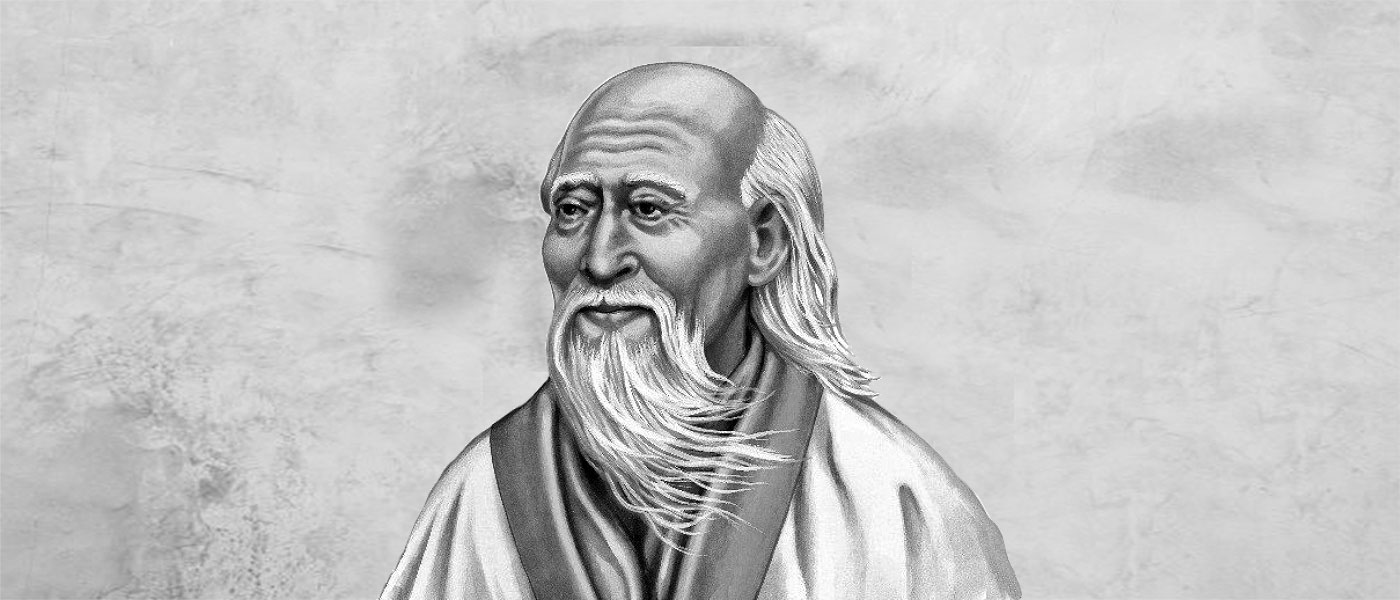
Daoism is one of the three pillars of Chinese philosophy, and its founders Laozi and Zhuangzi implore us to unshackle ourselves from the constraints of the way we think and live a spontaneous, authentic life.
When many of us think of “philosophy”, we conjure images of toga-wearing Greeks debating in the agora in Athens. Or Renaissance thinkers like René Descartes contemplating consciousness in his armchair. Or perhaps Simone de Beauvoir and Jean-Paul Sartre smoking Gauloises in the cafés of post-war Paris.
But there is another tradition of philosophy that comes out of China that is just as deep and diverse, with just as long a history. It has considered many of the same questions as Western philosophy, such as the nature of reality, the possibility of knowledge and how to live a good life, but has sought to answer these questions in very different ways to many Western thinkers.
There are generally considered to be three pillars to Chinese philosophy: Confucianism, Daoism and Buddhism. All three have mixed and intermingled over centuries to deeply influence Chinese culture and thinking to this day.
Daoist spontaneity and playfulness
In many ways, Daoism was a reaction against Confucianist thinking, which has strict rules on how we are supposed to live our lives, on the social roles and responsibilities we are supposed to take on, and has a strong emphasis on order and ritual. Daoism was a total rejection of these things, and is much more about living spontaneously, intuitively and experiencing a direct connection with nature and existence.
Daoism has two great masters, Laozi, who wrote the Daodejing, and Zhuangzi, who wrote the eponymous Zhuangzi. Both of these thinkers are believed to have lived between the 6th and 4th centuries BCE, but while there are many stories about their lives, it’s difficult to separate fact from legend.
Both the Daodejing and the Zhuangzi are very playful texts, quite unlike most Western philosophy. Instead of outlining abstract theories supported by dry logical arguments, both were written in the form of sayings or stories that are often irreverent or absurd. They encourage the reader to reflect on life in a creative rather than analytic way.
For example, there’s a passage where Zhuangzi wakes up after dreaming he was a butterfly. But then he can’t be certain that he’s not right now a butterfly dreaming he’s a man. A similar sentiment was expressed by René Descartes, although far less poetically.
The three daos
The term “dao” itself is often translated to mean “way” or “path,” but it’s not an easy concept to pin down, which is by design. In a sense, the dao is like the natural order of the world, and following the dao is to be living in accordance with nature.
There are typically considered to be three daos:
- The human dao: the world of words, judgements and society
- The natural dao: the natural processes and regularities of the world, like the laws of nature
- The grand dao: the sum total of all things in the universe
These have a complex relationship, and Laozi wanted to make sure we don’t make the mistake of thinking the human dao is the only dao there is. For while we automatically use words and concepts to carve the world up into discrete things, nature itself is continuous. And while we can be judgemental, nature itself is free from judgement.
A central tenet of Daoism is embracing these opposite and contradictory states simultaneously. We can see some if this reflected in the yin/yang symbol, taijitu. It is at once a unitary thing, but it’s also composed of two opposites: the yin and the yang. This can be interpreted as representing the divisions that emerge within human thought – the separation of the one natural world into light/dark, hard/soft, active/passive, good/bad – but also shows how these things are complementary and all part of a greater whole.
There are even some Western thinkers who have wholeheartedly embraced this notion of complementarity. Notably, the Danish quantum physicist Niels Bohr argued that the seemingly contradictory quantum and classical accounts of reality weren’t in opposition but were complementary. He even chose the taijitu symbol for his coat of arms when he was knighted by the King of Denmark.
Many of the lines in the Daodejing and Zhuangzi challenge us to unshackle ourselves from the human dao and to contemplate the natural and the grand dao, and to realise that they’re all really one and the same.
For example, one translation of the opening line of the Daodejing is “the dao that can be spoken is not the true dao.” (In Chinese, it’s even more obtuse, being: “the dao that you can dao is not the true dao”.) If that’s so, then why speak or write this at all? And yet this realisation could only have come from writing this in the first place. Thus does a core paradox of daoism enter our minds to do its noble work.
Just be
Daoism teaches us to practice emptiness and non-action, which sits in stark contrast to many philosophical traditions that teach us to fill our minds with knowledge and to act with intent. Daoism tells us that things in the world just are, we are also in the world and just are, but we have this irritating habit of forgetting to just be and instead think and reflect on what we are, and then are guided by what we think we are instead of just being what we really are. It’s that simple.
“Therefore the sage dwells in the midst of non-action and practices the wordless teaching” – Laozi
Laozi and Zhuangzi are often cheeky, irreverent, playful and inscrutable. In a way, they are urging us to encounter nature directly, not mediated by words, and definitely not by rituals and rigid social roles.
This is not an easy thing to do, which is why the text encourages – or nags – us to snap us out of our complacent reliance on abstract concepts rather than experience concrete reality.
Dr Tim Dean is a philosopher, writer, honorary associate with the University of Sydney, editor of the Universal Commons, and faculty with The School of Life.
Ethics in your inbox.
Get the latest inspiration, intelligence, events & more.
By signing up you agree to our privacy policy
You might be interested in…
Explainer
Relationships
Ethics Explainer: Consequentialism
Opinion + Analysis
Business + Leadership, Relationships
Moving work online
Opinion + Analysis
Health + Wellbeing, Relationships
Anzac Day: militarism and masculinity don’t mix well in modern Australia
Opinion + Analysis
Health + Wellbeing, Relationships
Mutuality of care in a pandemic
BY Dr Tim Dean
Dr Tim Dean is Philosopher in Residence at The Ethics Centre and author of How We Became Human: And Why We Need to Change.
We need to talk about ageism

There’s growing evidence of change afoot in attitudes toward age, ageing and older people and it’s about time.
After decades of pondering – and usually catastrophising – about the impact on society of the dreaded ‘ageing population’, we may just be reaching a tipping point.
This term, tipping point, is described by Malcolm Gladwell in his bestselling book of that title as the “magic moment when an idea, trend, or social behaviour crosses a threshold, tips, and spreads like wildfire”.
US ageism activist, Ashton Applewhite, suggests we might be there. She is the author of This Chair Rocks – A Manifesto Against Ageism and will be visiting Australia in November this year.
“The Guardian has just appointed a Longevity Reporter, for example,” she said, “who interviewed me at length and kept asking whether the culture was at a turning point”.

Applewhite argues most people are looking to cash in on the ‘longevity economy’ by selling products and services to a generation that controls most of the disposable income in the developed world.
“But there are also a zillion conversations going on about intergenerational initiatives, older women coming into our power, teaching medical students about age bias, incorporating age into diversity and inclusion training, fetishising of the old-and-fashionable, and many more domains.”
This is happening because people everywhere are waking up to the fact that no domain – from healthcare, to entertainment, to business, technology, the built environment – will be unaltered by the permanent, global and unprecedented phenomenon of population ageing. It carries fascinating social, economic, and ethical implications.
The big lag
One of the biggest challenges of population ageing stems from the fact that the roles and institutions around us – with all their underpinning assumptions, attitudes and behaviours – were created when lives were shorter and very different. And they haven’t had time to properly catch up.
A coalition of diverse Australian organisations and individuals have committed to address this lag with EveryAGE Counts, a long term advocacy campaign to change these destructive, outdated, yet deeply engrained attitudes and assumptions about ageing and older people. The coalition includes the Australian Human Rights Commission, COTA Australia, National Seniors, the Federation of Ethnic Communities Councils, and the Regional Australia Institute.
“Research shows that many of society’s views about older people – the views and assumptions that drive all the negativity around ageing – are based on outdated myths and stereotypes that simply do not apply in this era of prolonged good health and increased longevity,” says EveryAGE Counts campaign co-chair, Robert Tickner.
“People are being prevented from living the productive, healthy, engaged lives they want to live as they get older because our society tends to devalue and marginalise older people,” he says.
“And these negative stereotypes are so pervasive and deeply ingrained – in our language, in representations in the media and in popular culture – that many of us have bought into them without question. So we actually contribute to our own marginalisation as we grow older. It’s why ageism is often described as prejudice and discrimination against your future self!”
The EveryAGE Counts campaign aims to end ageism. It is working to make it as unacceptable as other forms of prejudice and discrimination in our community.
“Terms like sexism, racism and homophobia are well understood and have become embedded in our societal norms. Ageism is not. Racist, sexist and homophobic behaviours are easy to spot, ageist behaviours, less so,” said Tickner.
Ageism is a bit different to other ‘isms’. Racist or sexist attitudes and behaviours, for example, are usually based on prejudices and assumptions about a person or a group that is ‘different’ to us – a different race, a different gender.
“The great irony is that ageism can affect us all, regardless of race, gender, religion, size, shape or our favourite music! It is discrimination against yourself, albeit your future self, for each and every one of us… should we be fortunate to live beyond our youth,” Tickner said.
There have been some great efforts in the last couple of decades, in Australia and internationally, to raise consciousness levels about ageism and its many negative impacts. Applewhite is trying to do this by urging us to swap ‘women’ for ‘older people’ when thinking about some of our attitudes and assumptions. Would you use a sweeping generalisation for an entire gender? Do you think ‘older people’ who may span 30 to 50 years in age, are all the same?
Many are comfortable calling out racism, sexism or homophobia. Yet jokes about older people are less likely to attract reprimand. I encourage you to check out the EveryAGE Counts campaign, take the ‘Am I Ageist?’ quiz and sign our campaign pledge:
I/we stand for a world without ageism where all people of all ages are valued and respected and their contributions are acknowledged. I/we commit to speak out and take action to ensure older people can participate on equal terms with others in all aspects of life.
MOST POPULAR
ArticleHEALTH + WELLBEING
Maggie Beer: Good food can drive better aged care
ArticleHEALTH + WELLBEING
Parent planning – we should be allowed to choose our children’s sex
Are we idolising youth? Recommended reads
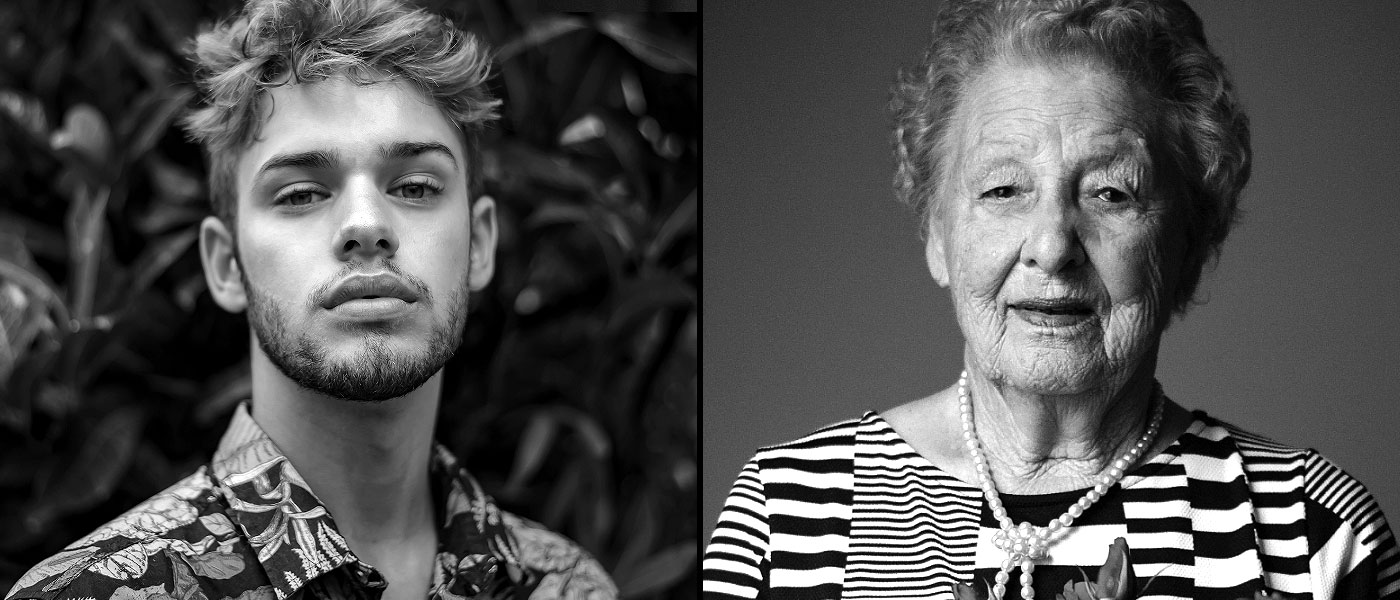
Are we idolising youth? Recommended reads
Opinion + AnalysisClimate + EnvironmentPolitics + Human Rights
BY Kym Middleton 6 JUN 2019
IQ2 Australia debates whether we need to ‘Stop Idolising Youth’ on 12 June.
Advertisers market to youth despite boomers having the strongest buying power. Unlike professions such as law and medicine, the creative industries prefer ‘digital natives’ over experience.
Young actors play mature aged characters. Yet openly teasing the young for being entitled and lazy is a popular social sport. Are the ageism insults flung both ways?
1. Why do marketers hate old people?
Ad Contrarian, Bob Hoffman / 2 December 2013
An oldie but a goodie. Bob Hoffman is the entertainingly acerbic critic of marketing and author of books like Laughing@Advertising. In this blog post he aims a crossbow at the seemingly senseless predilection of advertisers for using youth to market their products when older generations have more money and buy more stuff.
“Almost everyone you see in a car commercial is between the ages of 18 and 24,” he says. “And yet, people 75 to dead buy five times as many new cars as people 18 to 24.” He makes a solid argument.
2. It’s time to stop kvetching about ‘disengaged’ millennials
Ben Law, The Sydney Morning Herald / 27 October 2017
Ben Law asks, “Aren’t adults the ones who deserve the contempt of young people?” He argues it is older generations with influence and power who are not addressing things as big as the non-age-discriminatory climate crisis. He also shares some anecdotes about politically engaged and polite public transport riding kids.
You might regard a couple of the jokes in this piece leaning toward ageist quips but Law is also making them at his own expense. He points out millennials – the generation to which he belongs and the usual target for jokes about entitled youth – are nearing middle age.
3. Let’s end ageism
Ashton Applewhite, TED Talk / April 2017
There’s something very likeable about Ashton Applewhite – beyond her endearing name. This is even though she opens her TEDTalk with the confronting fact the one thing we all have in common is we’re always getting older. Sure, we’re not all lucky enough to get old, but we constantly age.
In pointing to this shared aspect of humanity, Applewhite makes the case against ageism. This typically TED nugget of feel good inspiration is great for every age. And if you’re anywhere between late 20s and early 70s, you’ll love the happiness bell curve. In a nutshell: it gets better!
4. Instagram’s most popular nan
Baddiewinkle, Instagram/ Helen Van Winkle
Her tagline is “stealing ur man since 1928”. Get lost in a delightful scroll through fun, colourful images from a social media personality who does not give a flying fajita for “age appropriate” dressing or demeanours. Baddie Winkle was born Helen Ruth Elam Van Winkle in Kentucky over 90 years ago.
Her internet stardom began age 85 when her great granddaughter Kennedy Lewis posted a photo of her in cut-off jeans and a tie-dye tee. Now Winkle’s granddaughter Dawn Lewis manages her profile and bookings. Her 3.8 million followers show us audiences aren’t only interested young social media influencers. “They want to be me when they get older,” Winkle says. Damn right we do.
Event info
IQ2 Australia makes public debate smart, civil and fun. On 12 June two teams will argue for and against the statement, ‘Stop Idolising Youth’. Ad writer Jane Caro and mature aged model Fred Douglas take on TV writer Ben Jenkins and author Nayuka Gorrie. Tickets here.
MOST POPULAR
ArticleHEALTH + WELLBEING
Maggie Beer: Good food can drive better aged care
ArticleHEALTH + WELLBEING
Parent planning – we should be allowed to choose our children’s sex
BY Kym Middleton
Former Head of Editorial & Events at TEC, Kym Middleton is a freelance writer, artistic producer, and multi award winning journalist with a background in long form TV, breaking news and digital documentary. Twitter @kymmidd
What I now know about the ethics of fucking up

What I now know about the ethics of fucking up
Opinion + AnalysisRelationships
BY Alison Hill 28 MAY 2019
We’ve all fucked up before. Big mistakes and small, regrettable misdemeanours.
I have a penchant for saying things that are funny inside my head but come out all wrong. I know I’ve unintentionally offended and hurt people by blurting out the first thing that comes to mind. If I’ve become aware of it, I’ve tried to make amends. But it’s never been big, public or career ending. So, being honest, part of my interest in going along to ‘The Ethics of Fucking Up’ was schadenfreude.
I wanted to hear how Sam Dastyari and Mel Greig, who shared their stories of the ‘Chinese political donor scandal’ and the ‘Royal prank call’ had stuffed up. In truth, I wanted to revel in it just a little, to tell myself that at least it had never been that bad for me. I wanted to identify with Paul McDermott, whose fuck ups had never made the front pages or ruined lives.
I watched the crowd enter the sold-out venue in inner Sydney, thinking that every single one of these people who looked so smart, privileged and self-possessed had done at least one monumentally stupid thing in their lives. Had they come looking for redemption? For confirmation that what they did was okay? Because we all fuck up, whether we’re being naïve and thoughtless or doing something dastardly.
Pizza, wine and dark confessions
So what did I take away from a night that was variously funny, intelligent, shocking and sad, with pizza and wine thrown in for good measure?
It seems the biggest fuck ups come about when there is a combination two things: individuals being encouraged to act without first thinking through their decisions, and institutions not living by an ethical framework – or not having one at all. Add to that the speed at which we act in the tech era and it’s no wonder we’ve hurtled into our present state.
As Sam described it, ‘We’re heading backwards with our morality, with our acceptance and empathy for others, with our responsibility for the planet, while fear, selfishness and xenophobia are controlling our political decisions’.
So despite not being able to condone what he did in the ‘Chinese political donor scandal’, my heart ached for him when he described how, in the midst of the scandal, he lay in bed at 3am alone with his thoughts, realising he was solely responsible for the mess.
Rethinking forgiveness
Nobody deserves this unless they have committed some monstrous crime. I decided that I will accept mea culpas and requests for forgiveness more graciously, in my personal life and by public figures. When somebody shows true remorse, I’ll forgive them, because I’m more aware how we all fuck up from time to time, in big and small ways. It’s only human.
We love to hold individuals to account, especially when they are public figures. Perhaps we should be harder on institutions. Mel Greig told us how the broadcast organisation’s processes and ethical judgements went unquestioned during the ‘Royal prank call’.
To recap: the call to the London hospital caring for the Duchess of Cambridge ended in the suicide of nurse Jacintha Saldanha, who fell for the joke thinking it was the Queen and Prince Charles. A chain of decisions meant the prank call was broadcast in full – although Mel tried to stop this happening.
Yet Mel had to wear all the blame. Her description of the trolling she endured afterwards, which included death threats, made the room go quiet. Tears shone in the eyes of the person next to me. Public shaming, relentlessly negative and disparaging media coverage and the non-stop blast of social media are damaging people like never before. At no time has it been easier to broadcast judgment on individuals, instantly and loudly. But institutions are never made to suffer in the same way. Think banking royal commission.
How would I survive if this happened to me, I wondered?
A call to arms against the trolls
Would I be brave and resilient like Mel, and use the horrible experience to start a conversation to help other people, as she did by starting Troll Free Day? Would I have been strong enough to front up to the inquest into nurse Jacintha Saldanha’s death, look her children in the eye and say sorry? Would I stop looking for scapegoats and accept blame, as Sam did, learning to live with what he called ‘the darkest shit in the world’?
As always, a discussion about ethics goes on long after the lights have been turned off. Listening to this conversation about the ethics of fucking up has encouraged me to start conversations about it with friends and family. I realised we all draw the line about what we will and won’t forgive somewhere different, one of the things that defines our personal ethics.
The crowd drifted into the street to the sounds of Paul Kelly’s I’ve Done All the Dumb Things and Cher’s If I Could Turn Back Time. Neither has ever been on my playlist, but I heard them in a new way. Opening your ears to things you think you already know is good thing.
I’ll certainly go back for The Ethics Centre’s conversations on desire, lying, courage and nudity.
MOST POPULAR
ArticleHEALTH + WELLBEING
Maggie Beer: Good food can drive better aged care
ArticleHEALTH + WELLBEING
Parent planning – we should be allowed to choose our children’s sex
Ethics Explainer: Ethics of Care

Ethics of care is a feminist approach to ethics. It challenges traditional moral theories as male-centric and problematic to the extent they omit or downplay values and virtues usually culturally associated with women or with roles that are often cast as ‘feminine’.
The best example of this may be seen in how ethics of care differs from two dominant normative moral theories of the 18th and 19th century. The first is deontology, best associated with Immanuel Kant’s ethics. The second is consequentialism, best associated with Jeremy Bentham’s utilitarianism and improved upon by John Stuart Mill.
Each of these moral theories require or encourage the moral agent to be unemotional. Moral decision-making is expected to be rational and logical, with a focus on universal, objective rules. In contrast, ethics of care defends some emotions, such as care or compassion, as moral.
On this view, there isn’t a dichotomy between reason and the emotions, as some emotions can be reasonable, morally appropriate or even helpful in guiding good decisions or actions. Feminist ethics also recognises that rules must be applied in a context, and real life moral decision-making is influenced by the relationships we have with those around us.
Instead of asking the moral decision-maker to be unbiased, the caring moral agent will consider that one’s duty may be greater to those they have particular bonds with, or to others who are powerless rather than powerful.
In a Different Voice
Traditional proponents of feminist care ethics include 20th century theorists Carol Gilligan and Nel Noddings. Gilligan’s influential 1982 book, In a Different Voice, claimed that Sigmund Freud’s theory of psychoanalysis and Lawrence Kohlberg’s theory of moral development were biased and male-oriented.
On these dominant psychological accounts of human development, male development is taken as standard, and female development is often judged as inferior in various ways.
Gilligan argued if women are ‘more emotional’ than men, and pay more attention to relationships rather than rules, this is not a sign of them being less ethical, but, rather, of different values that are equally valuable. While Gilligan may have deemed these differences to be ‘natural’ and associated with sex rather than gender, these differences may well have been socially constructed and therefore the result of upbringing.
How might the ethics of care theorist resolve the classical ‘Heinz’ dilemma: Should a moral agent steal the required medicine he cannot afford to buy to give to his very sick wife, or stick to the rule ‘do not steal’, regardless of the circumstances? A tricky dilemma, to be sure, as there are competing duties here (namely, a positive duty to help those in need as well as a negative duty to avoid stealing).
Arguably, the caring person would place the relationship with one’s spouse above any relationship they may or may not have with the pharmacist, and care or compassion or love would outweigh a rule (or a law) in this case, leading to the conclusion that the right thing to do is to steal the medicine.
It’s worth noting that a utilitarian might also claim a moral agent should steal the medicine because saving the wife’s life is a better outcome than whatever negative consequences may result from stealing. However, the reasoning that leads to this conclusion is based on unemotional weighing of costs and benefits, rather than a consideration of the relationships involved and asking what love might demand.
Writing at the same time as Gilligan, Noddings also defended care as a particular form of moral relationship. She asserted that caring was “ethically basic” to humans and that it can be seen in children’s behaviour. While Noddings does not rule men out from being caring, it is usually women who feature in her examples of caregivers.
Noddings, like Gilligan, prioritises relationships that are between specific individuals in a particular context as the basis for ethical behaviour. This stands in contrast to the idea that morality involves following universal, abstract or purely logical moral rules.
Who cares?
Ethics of care has been influential in areas like education, counselling, nursing and medicine. Yet there have also been feminist criticisms. Some worry that it maintains a sexist stereotype and encourages or assumes women nurture others, even while society fails to value carers as they should.
Noddings and Gilligan both argue against this, saying that the capacity for care is a general human strength, and while it is empowering to acknowledge it as a positive capacity in women, it should be encouraged regardless of gender.
Join us for a timely conversation on the unseen perspectives, ethical dilemmas, and shifting cultural expectations around care – one of the most fundamental aspects of being human. The Ethics of Care is live and online on Thursday 28 August 2025 at 6:30pm. Tickets available here.
Ethics in your inbox.
Get the latest inspiration, intelligence, events & more.
By signing up you agree to our privacy policy
You might be interested in…
Opinion + Analysis
Relationships
Paralympian pay vs. Olympian pay
Opinion + Analysis
Relationships, Society + Culture
The #MeToo debate – recommended reads
Explainer
Relationships
Ethics Explainer: Scepticism
Opinion + Analysis
Relationships, Science + Technology



